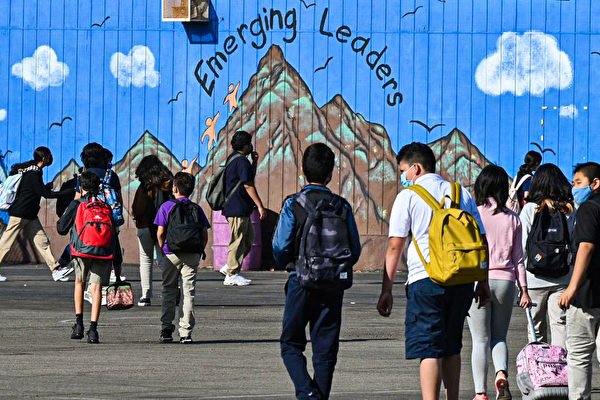On March 27, the California nonprofit independent news organization “EdSource” held an online discussion where participants shared innovative strategies for parents, teachers, and administrators to create opportunities in response to the challenges brought on by the pandemic. Various school districts discussed different focus areas.
In most parts of California, the process of recovering from the ongoing impact of the pandemic on student learning, prolonged absenteeism, and mental health issues has been slow and challenging. Deborah Clark, CEO of EdSource, mentioned that it has been a perplexing time for everyone. She shared her personal experience of trying to balance work and caring for her children who have been home-bound.
The Oakland REACH, co-founder and CEO Lakisha Young, introduced the “Reach” program launched during the early stages of COVID-19 to establish virtual family centers and assist children in online learning. The program significantly improved the reading levels of children, leading to the training and recruitment of more mothers, grandmothers, and community members to become tutors.
Young highlighted the importance of parental involvement in education and how the program had a positive impact. A similar model was replicated by the Rocky Mountain Prep alliance, comprising 12 public charter schools in Denver. Lorena Solorio, Vice Director of Health Programs at Rocketship Public Schools, emphasized the necessity of building support systems for students and their families beyond just relying on schools.
Solorio emphasized the importance of addressing basic needs like hunger and physical health, stating that unresolved issues like these can hinder a student’s ability to learn effectively in the classroom. The school staff were trained to assess family needs and assist with housing applications, health check-ups, and acquiring medical insurance to eliminate barriers to learning.
With approximately 73% of students in disadvantaged socio-economic situations, Compton Unified School District Superintendent Darin Brawley discussed efforts to track student attendance, absenteeism, and truancy data to implement appropriate incentives and create a conducive campus culture for learning. The district has shown significant improvements in graduation rates and academic performance over the years.
Cheryl Jordan, Superintendent of Milpitas Unified School District, highlighted the district’s innovative approach to education, focusing on project-based learning to engage students actively in their academic pursuits. The district also explored the possibilities of remote learning, which has gained prominence in light of the pandemic and garnered positive feedback from students.
Marguerite Roza, Director of the Education Economics Lab at Georgetown University, provided insights on California’s education funding trends. Despite the rising expenditure per student, academic performance has shown a decline since the onset of the pandemic, raising concerns about the effectiveness of resource allocation.
Roza emphasized the importance of strategic resource allocation to address essential areas like reading and mathematics performance rather than dispersing funds across various non-academic domains. She also stressed the significance of teacher quality over quantity in ensuring student engagement and academic success.
The discussions highlighted the critical need for targeted interventions and holistic support systems to address the multifaceted challenges faced by students and families in the education sector. As schools continue to adapt to the evolving landscape, collaboration and innovation remain key to ensuring quality education for all.

